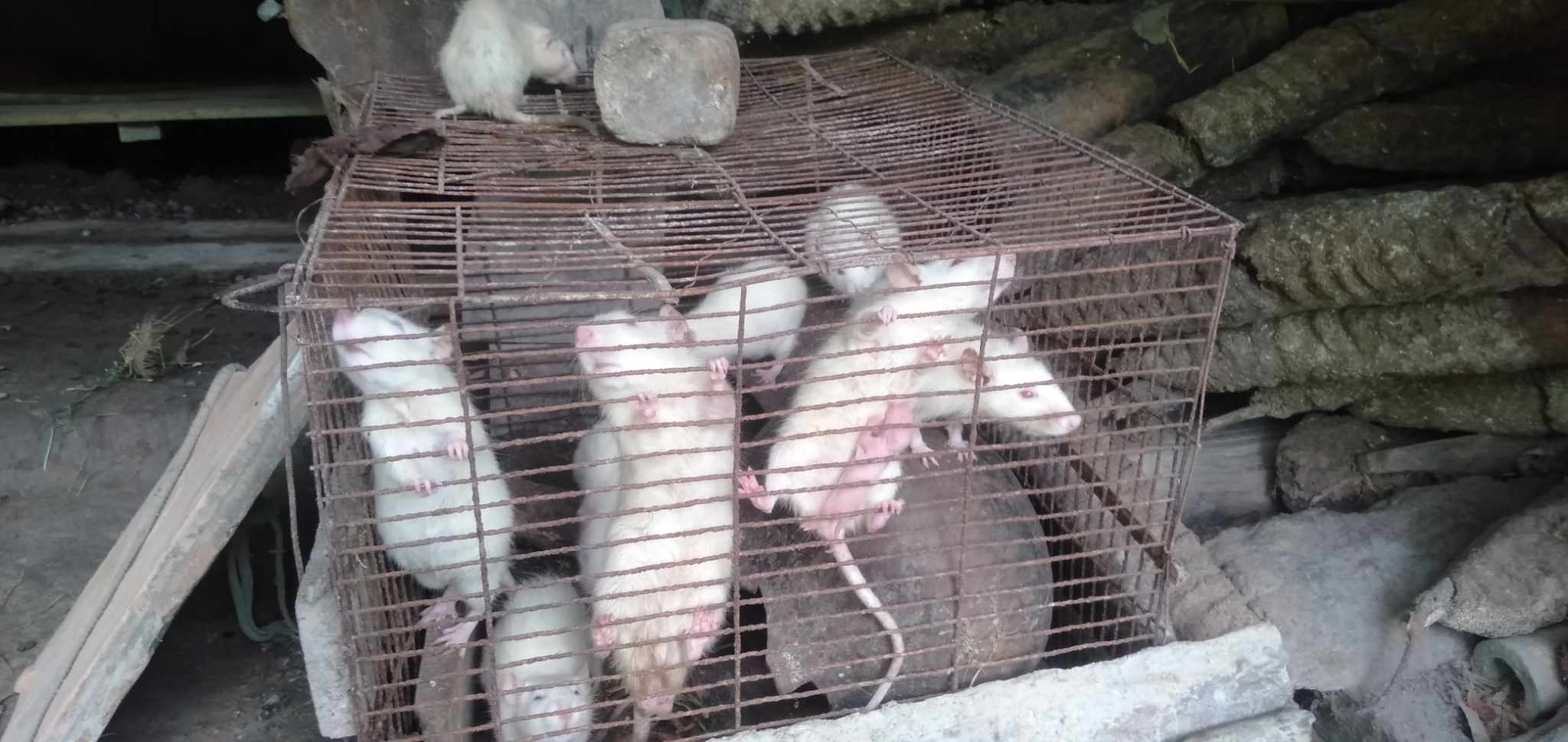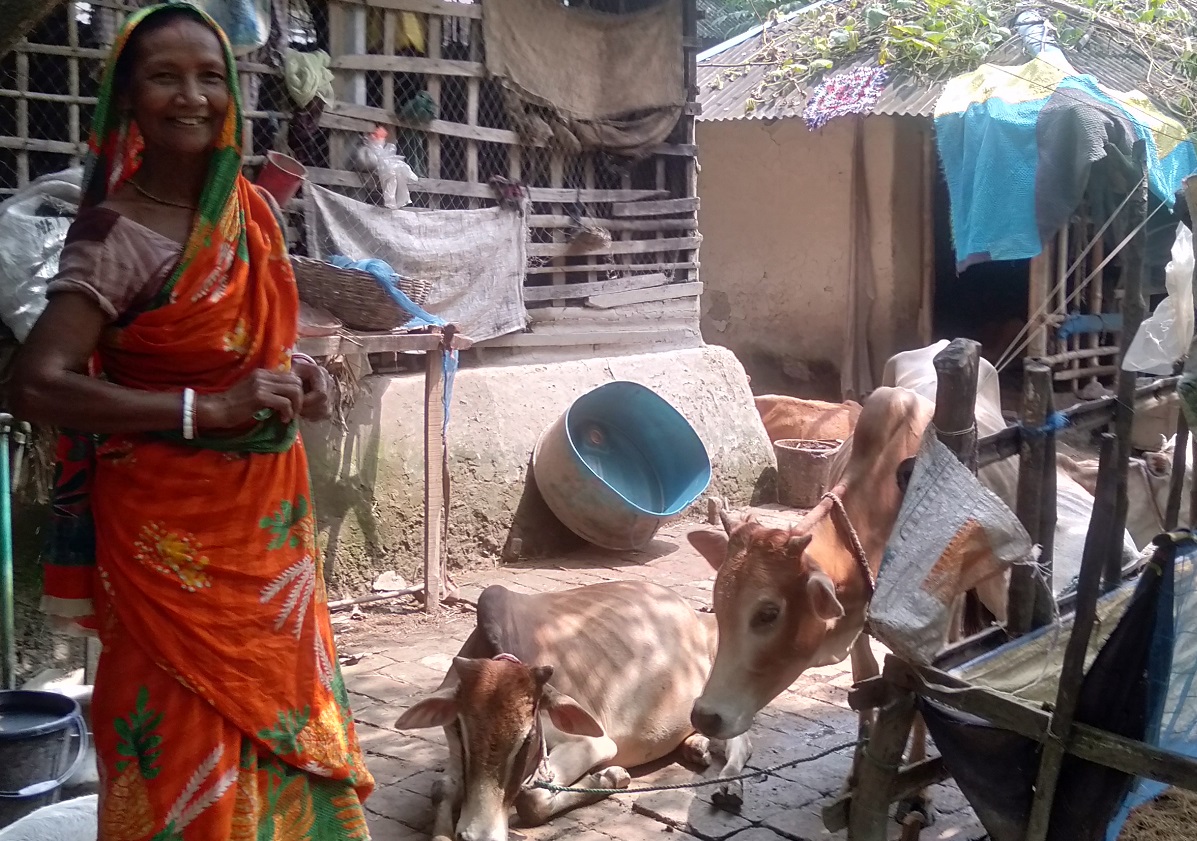By Biswajit Mondal, from Shyamnagar, Satkhira
Bangladesh, being an agriculture-based country, has farmers who also engage in livestock rearing throughout the year alongside crop cultivation. Livestock plays a vital role in meeting essential food demands and contributing to the economy. Today, this sector has become a key source of employment and a powerful tool in reducing rural poverty, with many unemployed people and women finding self-employment through livestock farming.
One such example is Kalpana Rani (55), a farmer from Kultali village under Munshiganj Union of Shyamnagar upazila. Owning six bighas of land, Kalpana, along with her husband Haripada Mondal, a day laborer, supports a family of seven, including children and grandchildren. She cultivates paddy, fishes in her ponds, and grows seasonal crops. Alongside farming, she has achieved remarkable success in livestock rearing.

Initially, Kalpana lived in a joint family where her freedom to pursue her own plans was limited. But after starting a separate household, she and her husband began planning for a better livelihood. They started rearing ducks, chickens, goats, and cows, gradually expanding the farm each year.
Presently, Kalpana owns 13 cows, 8 goats, 11 ducks, 7 “meri” ducks, 4 geese, 19 chickens, 8 pigeons, and even a rabbit. These meet her family’s nutrition needs and generate a steady income.
Kalpana raises only local breeds of livestock and uses traditional methods like baskets for hatching chicks. She practices organic farming, prepares vermi-compost and pit compost, and applies eco-friendly pest control methods such as yellow sticky cards and pheromone traps.
Kalpana said, “Livestock farming doesn’t require a lot of money. All you need is determination. I started small, and that is where my success came from. My home is now a nutrition bank having vegetables, fruits, uncultivated plants, milk, eggs, meat, and fish. We hardly need to buy food from the market.”

Her efforts have also been recognized by development organizations. In 2023, BARCIK identified her home as a “Nutrition Bank” model under its Shatobari program. Since then, she has been receiving training, advice, and materials support from BARCIK. Many farmers now visit her house to learn, and she exchanges seeds seasonally with neighbors.
In coastal areas like Shyamnagar, where climate change is disrupting crop farming, livestock is becoming an alternative income source for farmers. Kalpana Rani’s story stands as an inspiring example of resilience, showing how women’s determination can create both economic stability and food security.
